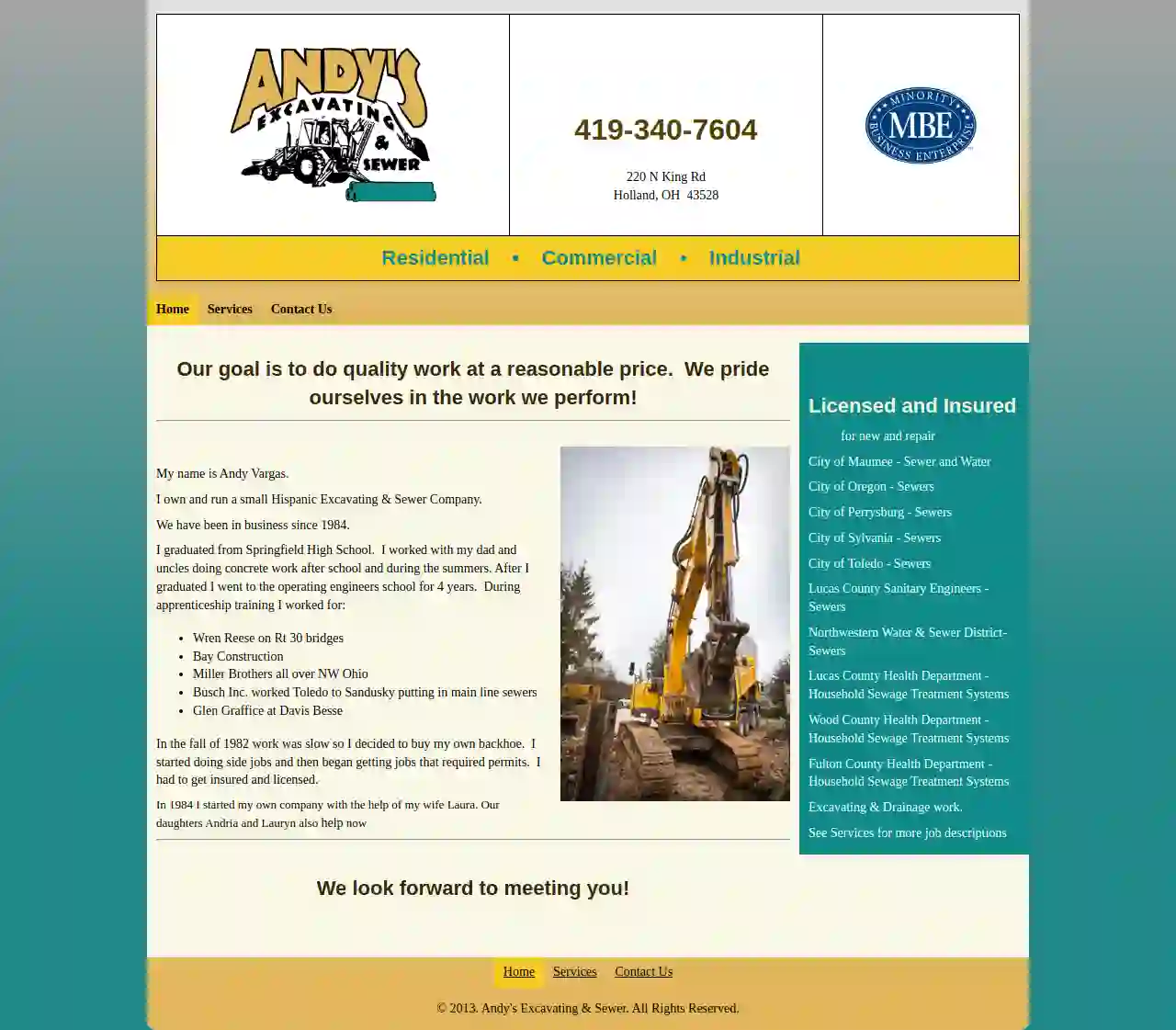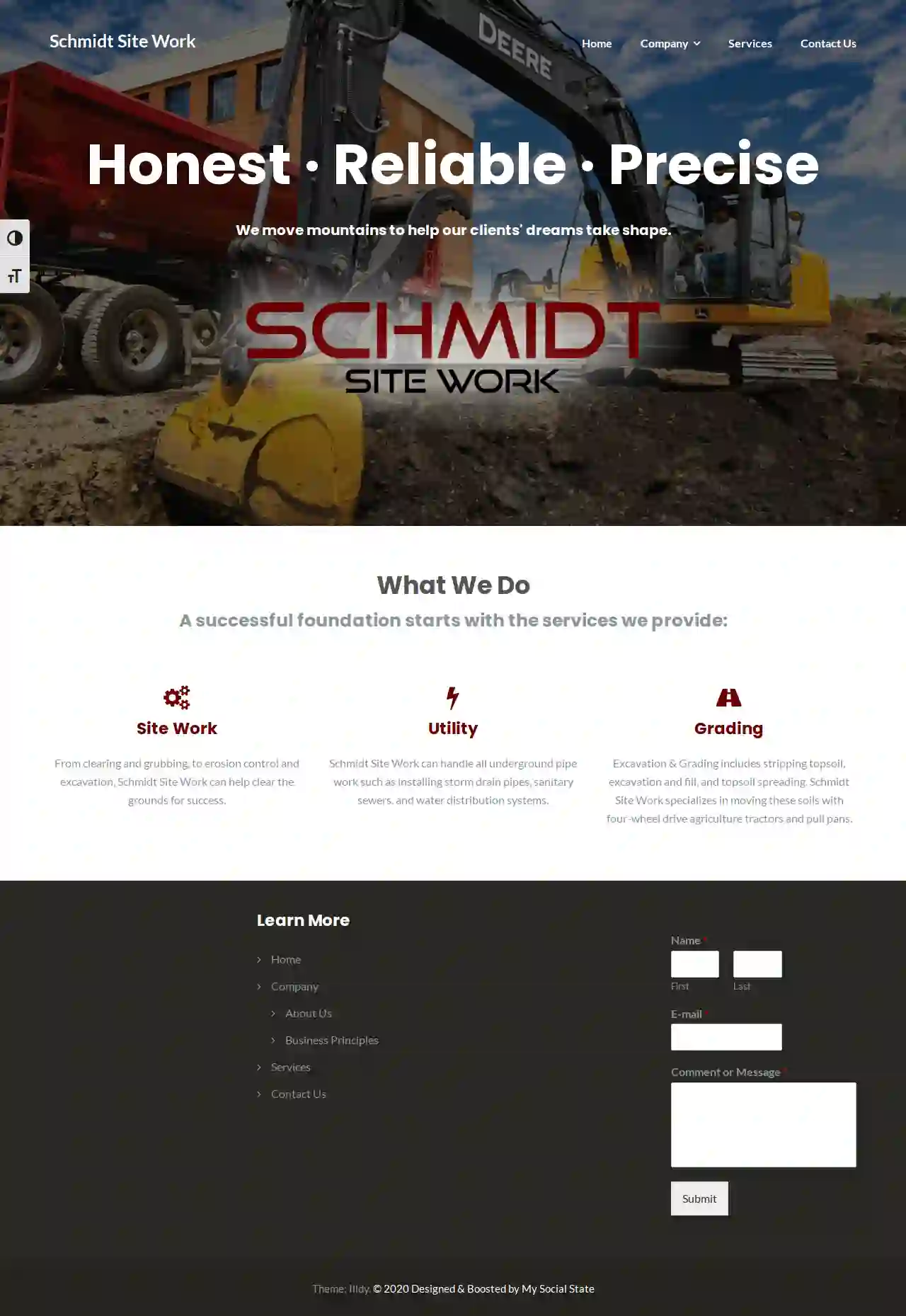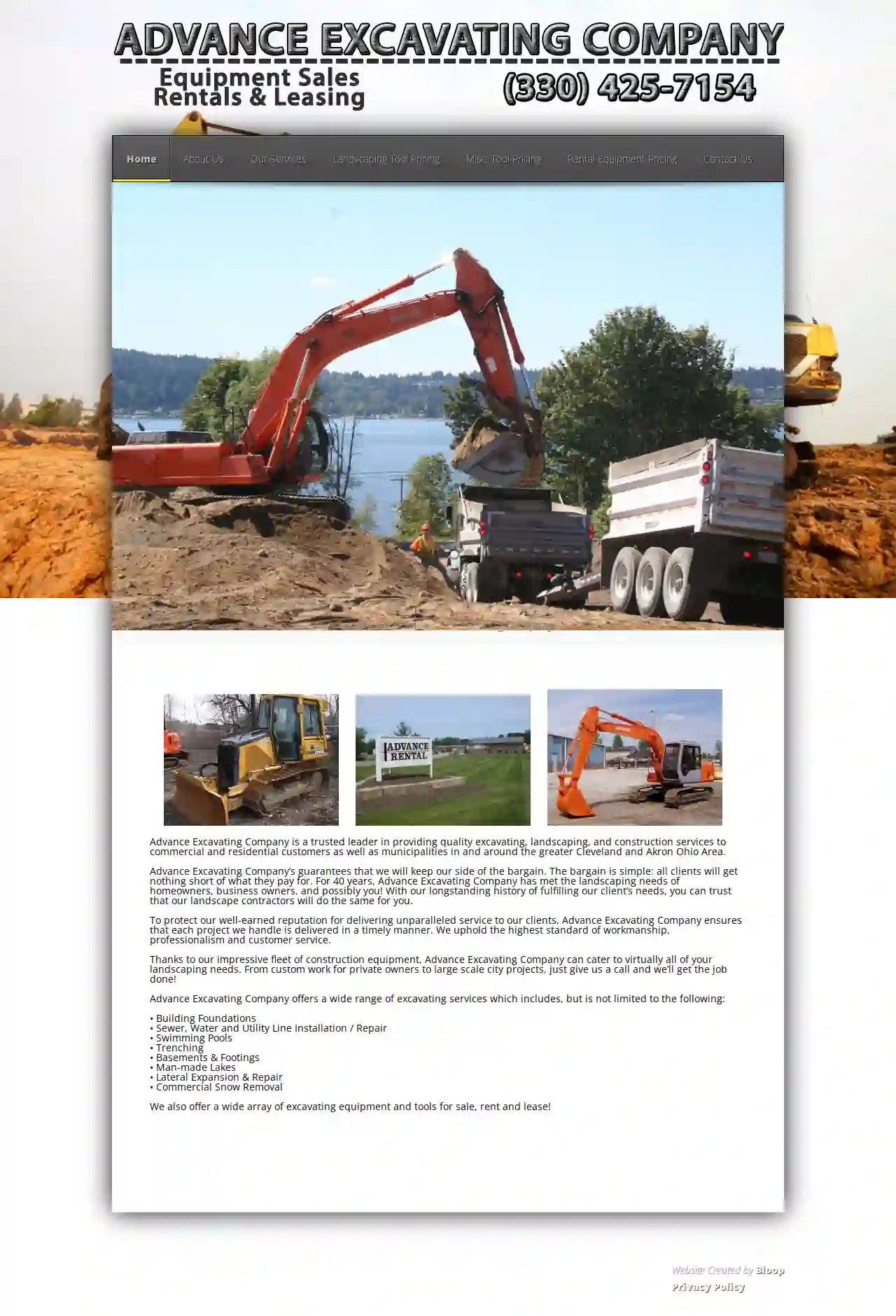Demolition Contractors Thomasville
Top Demolition Companies in Thomasville
Get up to 3 Demolition Experts quotes for your project today! Compare profiles, reviews, accreditations, portfolio, etc... and choose the best service.

Georgia's Best Clearing & Grading LLC
533 reviewsAtlanta, USGetting Ready For An Outdoor Project? Call Now Email Us Specializing in Tree Removal, Grading, Excavation & Drainage Solutions. Georgia's Best sets standards for high-quality results and outstanding customer service. Our team of experienced operators have the knowledge and tools to ensure your project is done professionally and on time. We provide our services for Loganville and other nearby areas. Call us today at 678-425-4230 or fill out a form to speak with our experienced team to get a free estimate. Choose between a convenient virtual estimate or an in-person evaluation! Georgia’s Best Professional Services Include: Tree Removal Lot Clearing Forestry Mulching Brush Clearing Debris Removal Yard Leveling Lot Grading House Pads Barn Pads Excavation Trenching Drainage Solutions French Drains Retaining Walls Detention Pond Maintenance Gravel Driveways Driveway Regrading Demolition Why Choose Georgia's Best? While commercial liability insurance is not mandatory for businesses in Georgia, a good rule of thumb is to have a minimum of 500,000.00 in coverage. Georgia's Best Clearing & Grading carries a 2,000,000.00 policy. Georgia's Best is locally owned and operated right here in Georgia. Our motto: "Always deliver more than expected." Efficiency is key to any business, our industry is no exception. Equipped with the latest technology and equipment, Georgia's Best will deliver results in a timely manner. A wise man said, "Quality is remembered long after price is forgotten". We couldn't agree more. We offer high quality work with competitive pricing and results that you can trust in Loganville, GA and the surrounding areas. Call us today at (678) 425-4230 to speak with our experienced team and get an estimate on your next clearing or grading project!
- Services
- Why Us?
- Testimonials
- Gallery
Get Quote
Andy's Excavating & Sewer
2.84 reviews220 N King Rd, Holland, 43528, USAndy's Excavating & Sewer: Your Trusted Partner for Excavation and Sewer Services in Northwest Ohio Andy's Excavating & Sewer is a family-owned and operated business serving Northwest Ohio since 1984. We are committed to providing high-quality excavation and sewer services at competitive prices. Our team of experienced professionals is dedicated to delivering exceptional results, exceeding your expectations, and building lasting relationships with our clients. Andy Vargas, the owner, has a deep passion for the industry, having learned the trade from his father and uncles. He further honed his skills by attending operating engineers school for four years, gaining valuable experience working on various projects across Northwest Ohio. This dedication to quality and expertise is reflected in every project we undertake. We understand the importance of reliable and efficient service. That's why we are fully licensed and insured, ensuring peace of mind for our clients. We are also proud to be certified by various organizations, including the City of Maumee, City of Oregon, City of Perrysburg, City of Sylvania, City of Toledo, Lucas County Sanitary Engineers, Northwestern Water & Sewer District, Lucas County Health Department, Wood County Health Department, and Fulton County Health Department. This ensures that we meet the highest standards of quality and safety in all our work. At Andy's Excavating & Sewer, we believe in building strong relationships with our clients. We take the time to understand your needs and provide personalized solutions that meet your specific requirements. Our team is always available to answer your questions and provide expert advice throughout the project. We are committed to delivering exceptional customer service and ensuring your complete satisfaction. Whether you need sewer line installation or repair, septic system maintenance, basement waterproofing, or any other excavation service, Andy's Excavating & Sewer is your trusted partner. We have a proven track record of success, having completed numerous projects for residential, commercial, and industrial clients. Our commitment to quality, reliability, and customer satisfaction has earned us a reputation as a leading provider of excavation and sewer services in Northwest Ohio. Contact us today to discuss your project and experience the Andy's Excavating & Sewer difference.
- Services
- Why Us?
- Accreditations
- Our Team
- Gallery
Get Quote
Schmidt Site Work
53 reviewsAugusta, USSchmidt Site Work's mission is to provide the highest-quality workmanship possible in the Augusta Georgia area. We succeed at this because of the integrity of our staff and subcontractors, our commitment to a solid work ethic, and our passion for staying current with the newest innovations of our industry, with consideration for the environment.
- Services
- Why Us?
- Gallery
Get Quote
Genco Concrete
4.720 reviewsColumbus, USGenco Concrete: Your Trusted Concrete Partner in Columbus, Ohio Genco Concrete is a family-owned and operated concrete company serving Columbus, Ohio and surrounding areas since 2003. We are dedicated to providing our customers with high-quality concrete services at an affordable price. We believe in working together with our customers to achieve their goals, and we are committed to providing excellent customer service. Why Choose Genco Concrete? 20+ years of experience in the concrete industry A commitment to customer service and satisfaction A focus on education and transparency Competitive pricing and affordable options A team of skilled and experienced professionals Our Services We offer a wide range of concrete services, including: Driveways Patios Stamped Concrete Sidewalks New Construction Concrete Pole Barn & Garage Concrete Commercial Concrete Our Values At Genco Concrete, we believe in: Trust: We put our customers' needs first and guarantee their satisfaction. Respect: We provide clear and honest information to our customers. Communication: We keep our customers informed throughout the entire process. Education: We educate our customers about their options and help them make informed decisions.
- Services
- Why Us?
- Gallery
Get Quote
Northeast Georgia Trucking & Grading
522 reviews1411 Old Rock Rd., Greensboro, 30642, USWelcome to Northeast Georgia Trucking & Grading Northeast Georgia Trucking & Grading is where family values and bettering the community are at the heart of everything we do! We're proud to be a locally owned business, founded by one of our own local Loganville and Greensboro natives, Justin and Heather Bailey. With over two decades of experience, our dedication to our industry, reliability, and passion shine through in every service we offer. Our business is deeply rooted in our community, and we've nurtured lasting relationships with local property managers, homeowners, and fellow businesses. At Northeast Georgia Trucking & Grading, we're not just a trucking, hauling and grading company; we're your neighbors and friends. We're here to serve our community with the utmost professionalism, care, and dedication to your unique needs. When you choose us, you're not just choosing a service; you're choosing a trusted partner who shares your commitment to our wonderful Northeast Georgia community.
- Services
- Why Us?
- Testimonials
- Gallery
Get Quote
Advance Excavating Company
52 reviewsColumbus, USWelcome to Advance Excavating Company Advance Excavating Company is a trusted leader in providing quality excavating, landscaping, and construction services to commercial and residential customers as well as municipalities in and around the greater Cleveland and Akron Ohio Area. Advance Excavating Company’s guarantees that we will keep our side of the bargain. The bargain is simple: all clients will get nothing short of what they pay for. For 40 years, Advance Excavating Company has met the landscaping needs of homeowners, business owners, and possibly you! With our longstanding history of fulfilling our client’s needs, you can trust that our landscape contractors will do the same for you. To protect our well-earned reputation for delivering unparalleled service to our clients, Advance Excavating Company ensures that each project we handle is delivered in a timely manner. We uphold the highest standard of workmanship, professionalism and customer service. Thanks to our impressive fleet of construction equipment, Advance Excavating Company can cater to virtually all of your landscaping needs. From custom work for private owners to large scale city projects, just give us a call and we’ll get the job done!
- Services
- Why Us?
- Gallery
Get Quote
GLS - Georgia Land Specialists Inc
512 reviewsBrooks, USGeorgia Land Specialists We are a family-owned company based in Brooks, Georgia serving contractors and private landowners. OWNER OPERATED! Our founder, Seth, makes it a point to embody hard work, efficiency, quality, and integrity in everything he does. Our work in this industry is no exception. We look forward to serving you and doing everything in our power to meet and exceed expectations on every project. We’ve Been Moving Dirt for 16 Years Growing up in Montana on 1,200 acres of potato farmland has given Seth (Founder and CEO of Georgia Land Specialists) a uniquely deep history with agriculture and machinery. He made his home in Georgia back in 2009, and since then he has been overjoyed to get back to his roots in equipment…
- Services
- Why Us?
- Our Team
- Gallery
Get Quote
Untavius Land Clearing & Excavation Service
Milledgeville, 31062, USExpertise and Mastery in Every Excavation Service As a certified, bonded, and insured excavation service specialist with over 14 years of experience, I provide unmatched knowledge and dependability throughout Milledgeville, GA. Whether you need help with grading, excavation, demolition, or landscaping, Untavius Land Clearing & Excavation Service can provide effective solutions that meet your requirements. Put your trust in my commitment to quality for your next project! Certified and Bonded Insured (Liability Insurance) 10% Discount Senior
- Services
- Why Us?
- Testimonials
- Gallery
Get Quote
Ogeechee River Land Management, LLC
53 reviewsSavannah, USAbout us We offer property maintenance to most of southeast GA. We offer a variety of services and guarantee our work to be top notch. We are a veteran owned family business that is determined to build a name for ourselves through customer satisfaction and quality work.
- Services
- Why Us?
- Gallery
Get Quote
Atlanta Grading & Demolition Services
52 reviewsAtlanta, USAtlanta Land Grading: Your Trusted Partner for Expert Yard Grading and Demolition Atlanta Land Grading specializes in high-quality yard grading and demolition services. Our skilled technicians use cutting-edge equipment to handle all your grading needs, from addressing drainage issues to facilitating new construction. We specialize in creating sustainable landscapes that add value to your property. Contact us today to turn your outdoor dream into a reality! Atlanta's Top Landscape Grading & Demolition Service for Residential, Commercial, and Industrial Needs At Atlanta Grading company we provide variety of services from Grading, Demolition, excavation and clearing. Experience to be Trusted Atlanta Land Clearing and Grading has been providing cost-effective solutions for site grading, pool excavation, demolition, land clearing, and dumpster rentals for over 10 years. With over 10,000 successful projects, we are committed to delivering excellent quality regardless of the project’s scale. Our People and Community At Atlanta Land Grading, our team of experienced experts is dedicated to contributing to the growth and development of the Atlanta community through our work. We actively engage with the community, supporting local initiatives, and fostering a strong bond with our neighbors. Our belief in collaboration with clients and the community helps us create a better, more sustainable future for all.
- Services
- Why Us?
- Gallery
Get Quote
Over 22,076+ Excavation Contractors onboarded
Our excavation contractors operate in Thomasville and surroundings!
ExcavationHQ has curated and vetted the Best Excavation Contractors in Thomasville. Find a top & trustworthy business today.
Frequently Asked Questions About Demolition Contractors
- Size and Complexity of the Structure: Larger and more complex structures, such as multi-story buildings, require more time, labor, and specialized equipment, increasing costs.
- Type of Demolition: Different demolition methods, such as implosion, wrecking ball, or high-reach demolition, have varying costs.
- Material Disposal: Disposal fees for demolition debris can contribute significantly to the overall cost, depending on the type and quantity of materials.
- Location and Accessibility: Demolition in densely populated areas or with limited access may require more planning and specialized equipment, affecting costs.
- Hazardous Materials: The presence of asbestos, lead paint, or other hazardous materials requires specialized removal and disposal procedures, adding to the expenses.
- Site Security: Secure the demolition site with fencing and warning signs to prevent unauthorized access.
- Personal Protective Equipment (PPE): Workers should wear appropriate PPE, including hard hats, safety glasses, gloves, and steel-toe boots.
- Hazardous Material Removal: Properly identify and remove asbestos, lead paint, or other hazardous materials before demolition begins.
- Utility Disconnections: Disconnect all utilities, such as electricity, gas, and water, before demolition.
- Controlled Demolition Techniques: Employ controlled demolition methods to minimize risks and ensure the structure comes down safely.
- Dust Control: Implement dust suppression measures, such as water spraying or misting, to reduce airborne particles and protect air quality.
- Emergency Planning: Have an emergency plan in place, including communication protocols and evacuation procedures, in case of unforeseen events.
- 'Can I see proof of your licensing and insurance?' Verify their credentials and coverage.
- 'What experience do you have with projects like mine?' Ensure they have relevant expertise.
- 'Can you provide references from past clients?' Check their reputation and customer satisfaction.
- 'What are your safety protocols?' Prioritize contractors who emphasize safety.
- 'How will you handle hazardous materials?' Ensure they have proper procedures for asbestos or lead abatement.
- 'What is your timeline for completing the project?' Understand the project duration.
- 'How will you manage noise, dust, and debris?' Discuss mitigation measures for minimizing disruption.
- 'What are your payment terms?' Clarify payment schedules and any required deposits.
How much does demolition cost in the USA?
What is a demolition bond?
What are the safety precautions for demolition?
What questions should I ask a demolition contractor before hiring them?
How much does demolition cost in the USA?
- Size and Complexity of the Structure: Larger and more complex structures, such as multi-story buildings, require more time, labor, and specialized equipment, increasing costs.
- Type of Demolition: Different demolition methods, such as implosion, wrecking ball, or high-reach demolition, have varying costs.
- Material Disposal: Disposal fees for demolition debris can contribute significantly to the overall cost, depending on the type and quantity of materials.
- Location and Accessibility: Demolition in densely populated areas or with limited access may require more planning and specialized equipment, affecting costs.
- Hazardous Materials: The presence of asbestos, lead paint, or other hazardous materials requires specialized removal and disposal procedures, adding to the expenses.
What is a demolition bond?
What are the safety precautions for demolition?
- Site Security: Secure the demolition site with fencing and warning signs to prevent unauthorized access.
- Personal Protective Equipment (PPE): Workers should wear appropriate PPE, including hard hats, safety glasses, gloves, and steel-toe boots.
- Hazardous Material Removal: Properly identify and remove asbestos, lead paint, or other hazardous materials before demolition begins.
- Utility Disconnections: Disconnect all utilities, such as electricity, gas, and water, before demolition.
- Controlled Demolition Techniques: Employ controlled demolition methods to minimize risks and ensure the structure comes down safely.
- Dust Control: Implement dust suppression measures, such as water spraying or misting, to reduce airborne particles and protect air quality.
- Emergency Planning: Have an emergency plan in place, including communication protocols and evacuation procedures, in case of unforeseen events.
What questions should I ask a demolition contractor before hiring them?
- 'Can I see proof of your licensing and insurance?' Verify their credentials and coverage.
- 'What experience do you have with projects like mine?' Ensure they have relevant expertise.
- 'Can you provide references from past clients?' Check their reputation and customer satisfaction.
- 'What are your safety protocols?' Prioritize contractors who emphasize safety.
- 'How will you handle hazardous materials?' Ensure they have proper procedures for asbestos or lead abatement.
- 'What is your timeline for completing the project?' Understand the project duration.
- 'How will you manage noise, dust, and debris?' Discuss mitigation measures for minimizing disruption.
- 'What are your payment terms?' Clarify payment schedules and any required deposits.